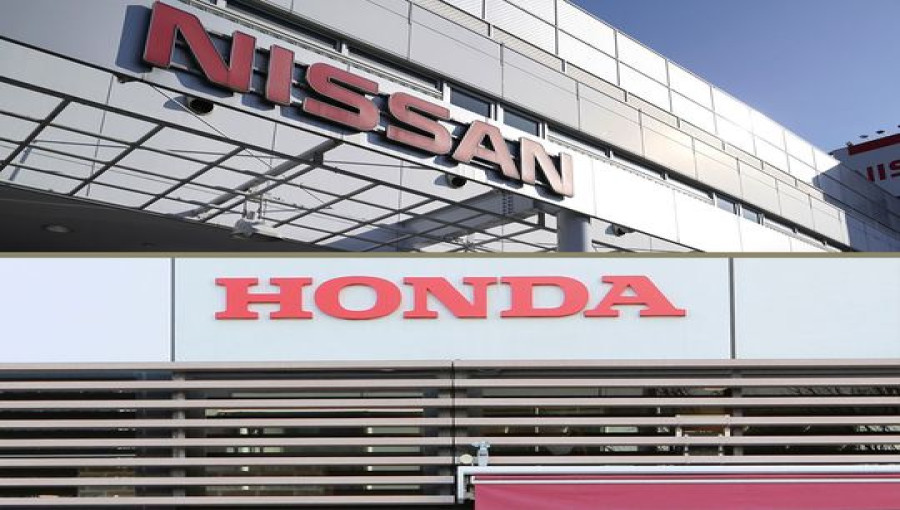TOKYO, Dec 18, (V7N): Japanese automakers Honda and Nissan are exploring a potential merger as part of a strategic effort to strengthen their position in the competitive electric vehicle (EV) market, media reports said Wednesday.
If the merger proceeds, it would create a formidable auto group to rival global EV leaders like Tesla and emerging Chinese manufacturers. The potential tie-up would also involve Mitsubishi Motors, in which Nissan is the top shareholder, under a single holding company, reports by Nikkei and Financial Times suggested.
Strategic Collaboration in EVs
The talks stem from an agreement in March, where the two companies decided to explore joint strategies in EV development. Analysts believe the collaboration aims to close the gap with Chinese manufacturers that have gained a strong foothold in the EV market.
Honda’s spokesperson acknowledged that a merger is one of several options being discussed, saying, “We are discussing possibilities for cooperation between Honda and Nissan in the future in various areas, but nothing has been decided.”
Nissan echoed a similar stance, stating, “As announced in March, Honda and Nissan are exploring various possibilities for future collaboration, leveraging each other's strengths.”
Challenges Facing Nissan and Honda
The discussions come at a critical time for Nissan, which has faced significant struggles, including a recent announcement of 9,000 job cuts and a reduced annual sales forecast. Despite these challenges, Nissan’s shares jumped over 20% in early trade following the merger reports, while Honda’s shares dipped slightly. Mitsubishi Motors saw a 14% surge.
The merger could help Nissan stabilize its operations and allow both companies to pool resources in the EV sector. Honda recently doubled its EV investment to $65 billion, aiming for 100% EV sales by 2040. Similarly, Nissan plans to launch 16 electrified models out of 30 new offerings over the next three years.
Global and Domestic EV Market Dynamics
The partnership highlights Japan's response to the rapidly evolving global EV landscape. China, which overtook Japan as the world’s largest vehicle exporter in 2023, has dominated the EV sector. While Japanese automakers have focused heavily on hybrids, they have fallen behind in pure EV adoption.
Hybrids accounted for 40% of car sales in Japan in 2022, compared to just 1.7% for fully electric vehicles. In contrast, EV sales accounted for 15% in Western Europe and 5.3% in the United States.
Despite global demand for cleaner vehicles, the EV market faces challenges such as high costs, limited charging infrastructure, and consumer concerns about reliability and range.
While the merger remains in preliminary stages, both companies are expected to sign a memorandum of understanding soon, according to Nikkei. If successful, the merger could create one of the world’s largest auto groups, capable of reshaping the EV and hybrid vehicle market.
Industry experts will closely watch for further developments as Honda and Nissan navigate this potential transformational collaboration.
END/BUS/RH






























Comment: